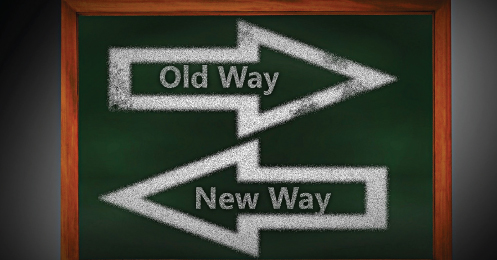The decision to replace ERP software for another can be due to a number of reasons. One of the most common is the need for specific functionality and a goal of increasing business efficiency. The term Enterprise Resource Planning (ERP) has been around since the early 90s but the need to better manage, track and control inventory is a commonality any business has, no matter the decade. For wholesalers and distributors, ERP software is the backbone of the business. With the ability to run accounting processes, manage inventory, and basic WMS functionality, the all-in-one system plays a huge role in a growing business.
Why Companies Replace their ERP
ERP systems are complex and without the right one suited for your processes, you’ll find yourself dealing with common ERP issues. This can happen from continuous use of a legacy/sunset system or a new system with the wrong processes for your industry. If you’re unhappy with your current ERP, in this post we’ll discuss a few reasons why a company might replace their ERP as a way to further increase business efficiencies.
Reasons why you might replace your ERP for another:
- Sunset software negatively affects your business
- You want to move from an on-premises solution to the cloud
- You want a system more aligned with your specific business needs
- You want better support or a personalized experience
Sunset Software/Legacy Systems Negatively Affects Your Business
ERP software, just like your smartphone, needs to undergo maintenance updates regularly as a way to sort out glitches, add features, refresh the design and ensure the software is secure. If a vendor sunsets a version of their software or the entire software altogether, a business can technically still use the sunset software – they would just be using an older version (imagine using Microsoft Word from 10 years ago compared to today). Many companies decide to continue using the ‘legacy’ system because they don’t want to deal with the disruption a software change can cause the business or fork over the money for a new implementation. But, continuing to use sunset software results in security and IT issues, lack of support and a missed opportunity for new features that can benefit the business.
Deciding to replace sunset software or legacy systems with a new ERP can truly benefit your business by providing you with up-to-date functionality including but not limited to automated routines, multiple integration options, EDI transactions, barcode scanning and more.
Moving from On-Premises to the Cloud
Moving from on-premises software to the cloud can be a scary thought to a business owner who has trusted in their software for 10+ years. But one of the biggest advantages is the vendor taking over IT management. When you choose the cloud, your data is stored in state-of-the-art highly secure data centers strategically placed in multiple cities which includes 99.9% up-time to keep your data secure. It is much more uncommon for your data to be hit with ransomware with cloud software as opposed to on-premises solutions where break-ins are more common, computers are rarely backed-up and are not up-to-date with the latest security patches and updates.
The cloud is also accessed via the internet anywhere in the world making remote work easier than ever before and the right vendor will perform regularly scheduled maintenance updates to further ease any doubts you have about moving to the cloud.
ERP Functionality Needs to Be More Aligned With Business Processes
SMBs’ technology requirements will change as they grow and the software in place will need to align with what your company needs. As a small business, you may have chosen a more generic ERP or maybe you’re even using multiple systems for different functions. As you grow you may find the need to replace the general ERP with specialized industry-specific software or the multiple systems for an all-in-one solution. For example, the Pharmaceutical Industry must comply with DSCSA guidelines which Pharma-specific ERP software will help them achieve. Other industries that require industry-specific software include Apparel, Food and Beverage, and Industrial products. Many industries will share some software requirements such as accounting and inventory management but still require additional industry-specific functionality.
You Want Better Support or a Personalized Experience
It can be a difficult task to narrow down the right ERP when starting your software search. Many business owners want to jump right into a demonstration and quotes. They want to know the system is user-friendly for their staff and aligns with the budget, which is fair. What’s often overlooked is the relationship you can develop with a vendor. ERP vendors are your technology partners and it’s much better to talk to the same local agent who knows you and your business as opposed to a call center agent across the pond. While large ERP vendors may offer 24/7 support, the quality of support should also be considered. Small ERP vendors won’t just implement the software, they’ll take the time to understand your business and even suggest better processes.
When replacing your ERP, remember to select a vendor who is able to offer you the best software experience so that you can focus on what matters – your business.
The Bottom Line
To replace ERP software successfully requires management support, employee involvement, a clearly defined project scope/plan for the future and….patience. Knowing the right time to replace ERP for your business can ease the mind of employees who are nervous about disruption. Many employees may not be on board with yet another ERP implementation which means more time spent on training for a new system. Create a Change Management strategy to ensure you and anyone involved with the replacement of your ERP is ready.
If you’re still debating whether or not replacing your ERP software is worth your time, consider this question: Is your business running as efficiently as possible? If the answer is no, then replacing your ERP will not only increase efficiency, but also motivate employees and boost profit.










